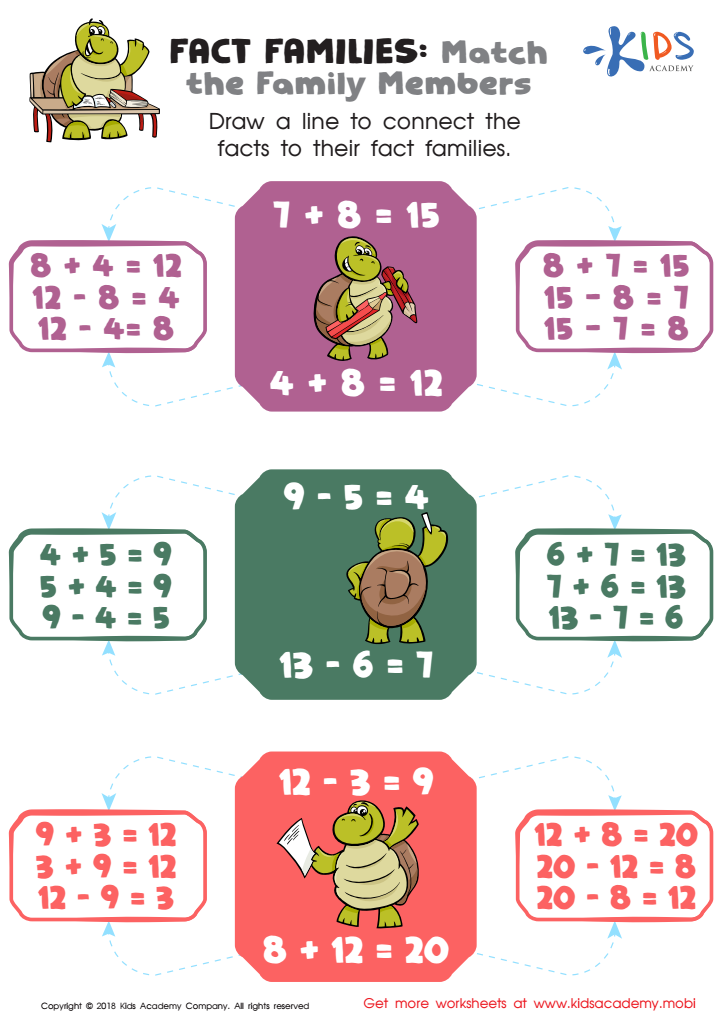Improve problem-solving skills Addition Worksheets for Ages 6-9
5 filtered results
-
From - To
Enhance your child's problem-solving skills with our engaging addition worksheets designed specifically for ages 6-9. Tailored to meet developmental needs, these worksheets combine fun activities with essential math practice, helping young learners master addition concepts. Kids will tackle various problems that encourage critical thinking and application of skills learned in their foundational math education. With clear instructions and visually appealing designs, these worksheets not only make learning enjoyable but also reinforce key math strategies. Watch as your child gains confidence and proficiency in addition while developing the necessary tools to approach mathematical challenges. Start their journey to problem-solving success today!


Fact Families: Match Family Members Worksheet
Teaching problem-solving skills in addition for children aged 6-9 is essential for several reasons. Firstly, this age group is at a critical stage in their cognitive development where they begin to think logically and recognize patterns. By fostering problem-solving skills, we empower them to approach mathematical challenges confidently, laying the foundation for lifelong learning.
Improving these skills encourages children to engage actively with math, turning potentially intimidating concepts into manageable tasks. This not only boosts their numerical abilities but also cultivates critical thinking, perseverance, and creativity in approaching challenges. As they learn diverse strategies to solve addition problems, they develop resilience when facing difficulties, which is crucial both academically and personally.
Furthermore, strong addition skills correlate with success in more advanced mathematical topics later on. By focusing on problem-solving now, teachers and parents provide children with tools to tackle homework effectively and enhance their overall academic performance.
Lastly, reinforcing these skills fosters a positive attitude toward math, crucial to preventing anxiety and disengagement in later years. In essence, enhancing problem-solving abilities in math for young learners equips them for future challenges, nurturing a generation of confident and capable problem solvers.


 Assign to My Students
Assign to My Students


















